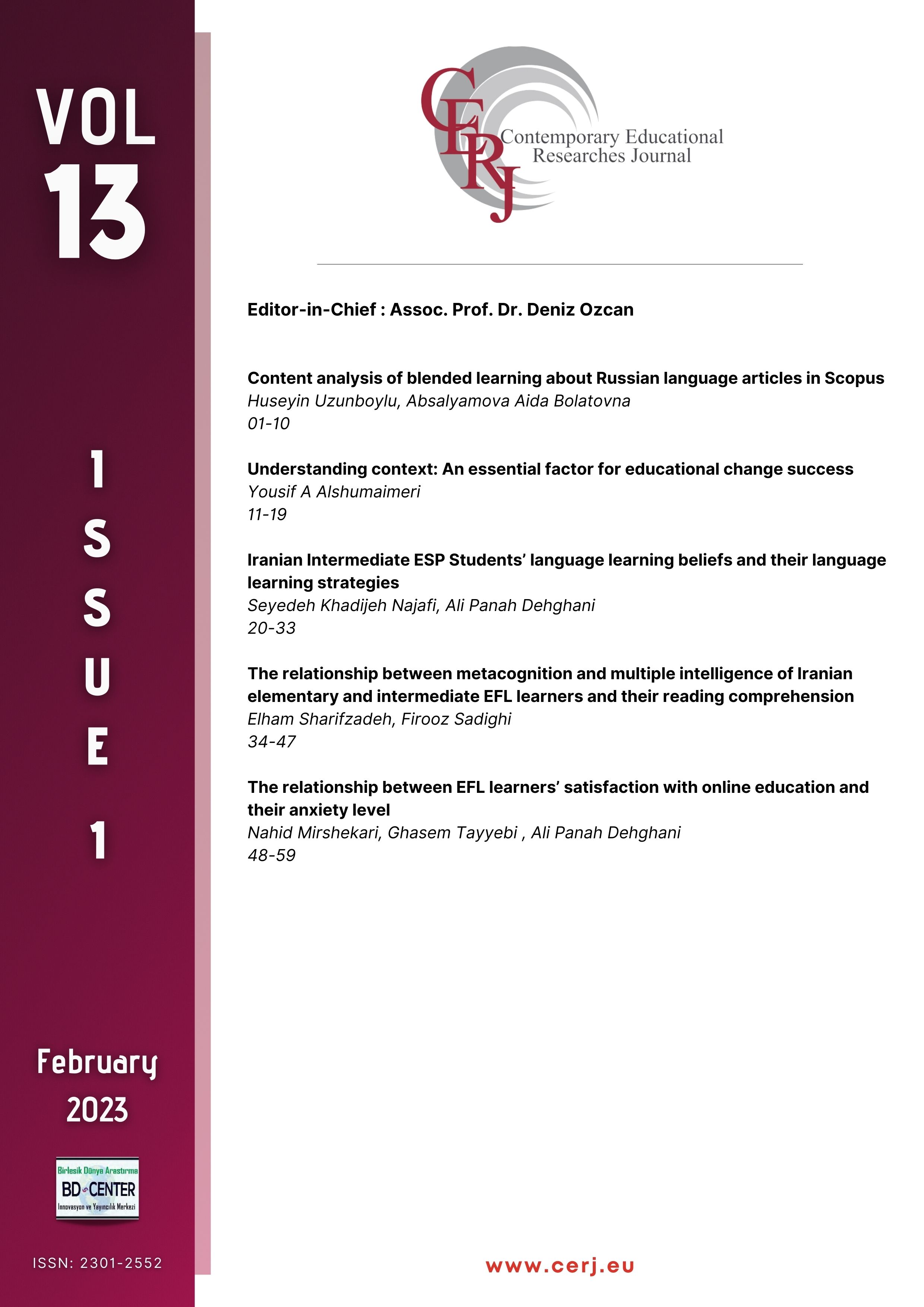Iranian Intermediate ESP Students’ language learning beliefs and their language learning strategies
Main Article Content
Abstract
The aim of the study is to examine the relationship between ESP students' language learning beliefs and strategy use. 68 Iranian female students studying in midwifery and nursing departments were selected. Study participants received the Quick Oxford placement, and 51 intermediate participants were selected from among them. Language Learning-Related Beliefs Inventory, and Language Learning Strategy-Inventory were used. Chi-square was used to find the relationship. The results showed that Iranian midwifery students are moderate in their beliefs about language learning, they generally use language learning strategies at a moderate level, and their preferences for language learning strategies are compensatory, metacognitive, memory, cognitive, social and affective. The results also showed that there is a positive relationship between ESP students' language learning beliefs and their use of language learning strategies. The findings of this study can also be fruitful for language learners and teachers, curriculum designers and material developers.
Keywords: ESP students, language learning beliefs, language learning strategies
Downloads
Article Details

This work is licensed under a Creative Commons Attribution-NonCommercial-NoDerivatives 4.0 International License.
Authors who publish with this journal agree to the following terms:
- Authors retain copyright and grant the journal right of first publication with the work simultaneously licensed under a Creative Commons Attribution License that allows others to share the work with an acknowledgement of the work's authorship and initial publication in this journal.
- Authors are able to enter into separate, additional contractual arrangements for the non-exclusive distribution of the journal's published version of the work (e.g., post it to an institutional repository or publish it in a book), with an acknowledgement of its initial publication in this journal.
- Authors are permitted and encouraged to post their work online (e.g., in institutional repositories or on their website) prior to and during the submission process, as it can lead to productive exchanges, as well as earlier and greater citation of published work (See The Effect of Open Access).
